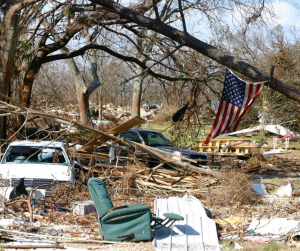 It’s 2005, and Hurricane Katrina cut through Louisiana leaving nothing but destruction and mayhem behind. This disaster sparked the largest Red Cross Relief Response in modern history, and a worldwide tidal wave of support shortly followed. Who could forget crying over newscasts of the devastation but celebrating with every rescue story? We all felt compelled to give, to help, to support.
It’s 2005, and Hurricane Katrina cut through Louisiana leaving nothing but destruction and mayhem behind. This disaster sparked the largest Red Cross Relief Response in modern history, and a worldwide tidal wave of support shortly followed. Who could forget crying over newscasts of the devastation but celebrating with every rescue story? We all felt compelled to give, to help, to support.
Fast forward 15 years and the world is now fighting an enemy they couldn’t see, smell, or touch. COVID-19 inspired that same compulsion to give to those who needed it most.
A recent report published by Candid, founded in 2019 when Foundation Center and GuideStar joined forces, and the Center for Disaster Philanthropy examined Philanthropy and COVID-19. After a full year of giving since the world turned upside down in the pandemic, this report answers the questions about how COVID impacted donors, nonprofits, and foundations.
To view the full report, click HERE.
The report found that $20.2 billion in funding was raised from corporations, foundations, public charities, and high-net-worth individuals to address the COVID-19 pandemic in 2020. Out of these dollars, community foundations awarded the most grants, 54% of all awarded dollars. Through partnerships with local communities and creating COVID-19 funds, community foundations provided much-needed support to nonprofits on their communities’ frontlines.
In total, various nonprofit organizations established over 1,000 COVID-19 response funds, much like the COVID-19 Community Response Fund here at The Foundation for Enhancing Communities (TFEC) in partnership with United Way of the Capital Region. At least $589 million was granted to financially vulnerable individuals and nonprofits throughout 2020, but needs in local communities still exist. When you give to TFEC’s COVID-19 Fund, you provide unrestricted, flexible support for nonprofits to purchase personal protective equipment, cleaning supplies, technology, and educational needs related to COVID-19. (If you are a nonprofit organization searching for funding due to COVID-19, you can view the Application for Support HERE.)
Nonprofit organizations were hit hard during the pandemic, and the sector as a whole lost 930,000 jobs by December 2020. These essential organizations position themselves to survive a short recession, but a more prolonged economic downturn could be devastating; almost 12,000 small nonprofits may have to close their doors within the following year. But organizations like TFEC and other community foundations are working tirelessly to keep funding these groups and ensure we can meet our local communities’ needs.
TFEC had $8,778,802 contributed in 2020. Of that total, $290,000 was for the COVID-19 Community Response Fund, which awarded $266,000 to nonprofit organizations responding to the spread of COVID-19 in Cumberland, Dauphin, Franklin, Perry, and Northern York Counties. This fund made 118 grants to 92 different nonprofit organizations since its inception.
TFEC also dedicated resources to help its nonprofit partners. We partnered with Helix Strategies, LLC to survey local nonprofit organizations on how the COVID-19 pandemic impacted them. Because of the drastic impact on the nonprofit sector, TFEC plans to hold three capacity-building workshops through the summer. Equipping nonprofit organizations to meet their missions and continually improve internally will create a sustainable and effective organization, financially, programmatically, or organizationally.
The COVID-19 pandemic changed all of our lives, forever, and we are not out of the woods yet. As your local community foundation, we dedicate ourselves to strengthening our local communities by investing in them now and for future generations.
For more information on our Capacity Building sessions visit www.tfec.org/capacitybuilding.
To support nonprofit organizations in your local community on the frontlines of combatting the COVID-19 pandemic visit www.tfec.org/covid19.
Questions about Capacity Building? Contact our experts: Janice Black, President & CEO, or Jennifer Doyle, Vice President of Community Investment & Philanthropy.
